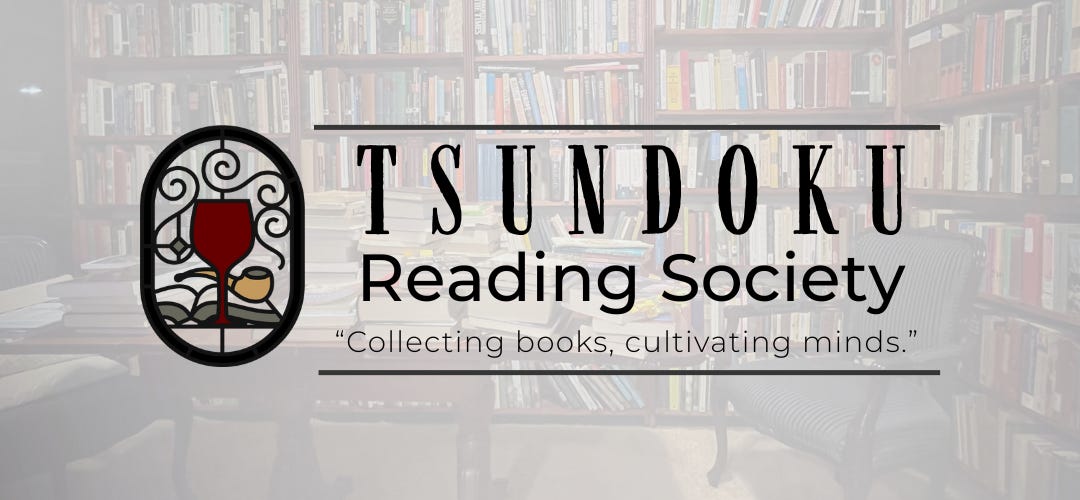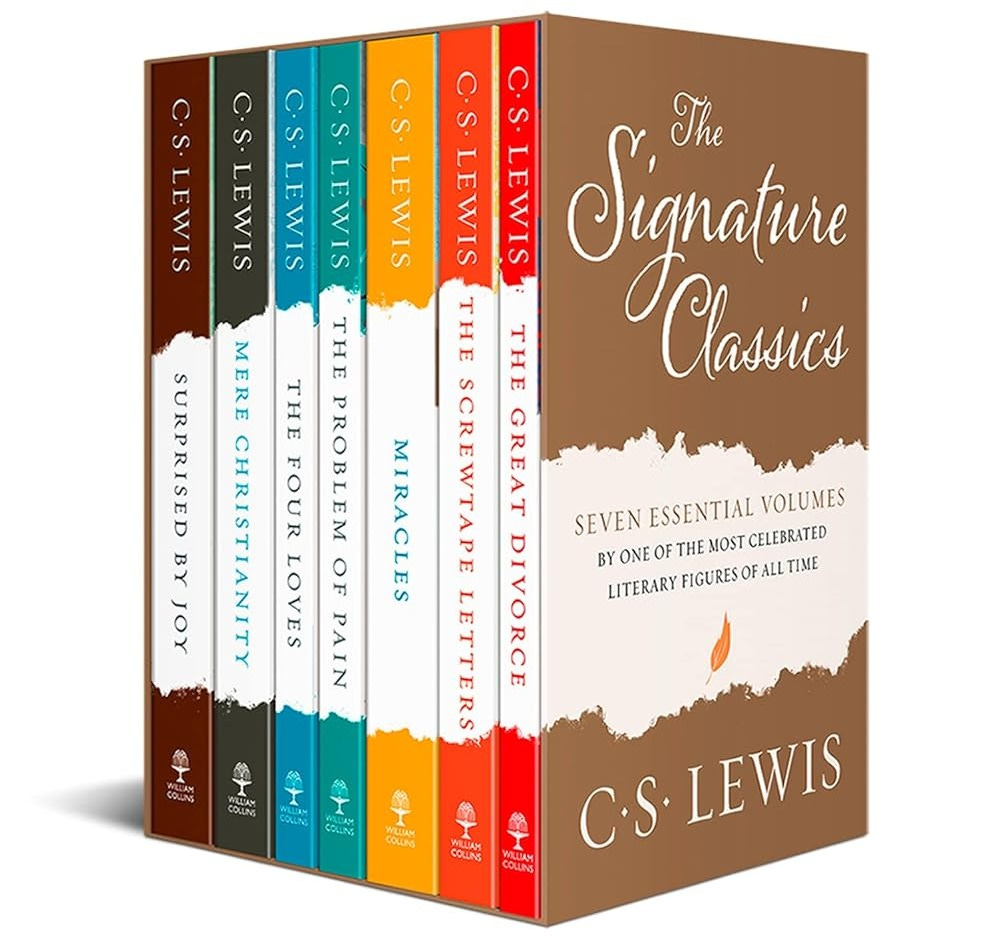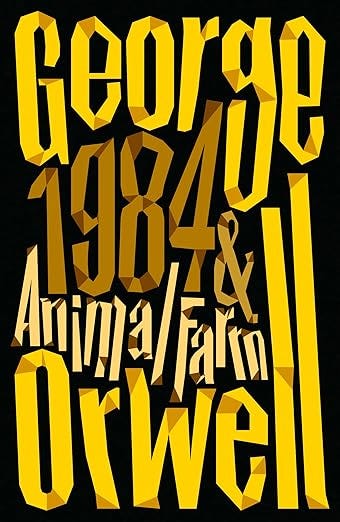Paid Subscribers and Poiema Fellows
3 Reasons to Upgrade Your Subscription at Books and Letters
We’ve all heard of the starving artist, the creative who struggles with the dilemmas of making ends meet and “selling out.” The dilemma goes something like this:
There is only so much time in the day and one has only so much energy to expend. The artist needs enough money to cover his expenses while he focuses on his creative pursuits. But, if he works a job to support himself, he has little time (or energy) for honing and perfecting his craft.
If, on the other hand, he invests the time in perfecting his art, he will have little time to work and pay his bills. Finding the right balance without burning out is a kind of dance. Additionally, the artist who tries to sell his art as a way of making ends meet is often tempted to “sell out” to the market—create what the market demands and not what the artist imagines.
What to do? Basic economics teaches us that even our most noble efforts of adding value to the lives of others have a price tag. The resources have to come from somewhere and work or production is that somewhere. Someone has to produce the resources—either the artist, or a benefactor, or the recipient of the noble effort, the good work. It could even be some combination of the three.
Enter Jim Henson, the creator of the Muppets. For Henson, money was a fuel that fed his art, and he didn’t sell out to make it. Instead, he made money with his art that funded more of the art he wanted to make. They key was finding the right people, people who believed in, benefited from, or were blessed by the art.
According to Fraggle Rock producer Larry Mirkin:
He [Jim Henson] viewed money as energy, the energy that makes concrete things happen out of worthy ideas. Money was not an end in itself. It could provide physical infrastructure or it could help him hire other artists and technicians to realize a nascent idea. I don’t ever recall him being the least bit concerned or afraid of money or obsessed by it, which many people are. It just wasn’t what drove him—at all.1
I was fortunate enough to learn this lesson several years ago. For the person who has a proper view of the ordering of goods—which goods are goods in service of some greater good and which goods are goods in and of themselves (i.e., health and money are goods in service of the greatest good; eudiamonia or human flourishing is a good for its own sake, a good for which other goods are in its service)—business is simply a vehicle for funding good works.2
The key is finding a benefactor who believes in, benefits from, and is blessed by the work. In the pre-modern world, benefactors were usually wealthy aristocrats. In our our democratic age, we turn to the people who believe in, benefit from, and are blessed by the work.
If that’s you, I don’t want to sell you on anything; and, I don’t want to sell out, either. But I would like to invite you to become both a benefactor and a beneficiary—a supporter and recipient of my work.
My mission and work at BOOKS AND LETTERS is clear. My constant endeavor is to rekindle thoughtful, humane engagement in an age that is dominated by fleeting trends and digital noise, by:
participating in the noble tradition of The Great Conversation and doing my part to help recover its legacy.
communing with humanity (i.e., letters): converse with the past, critique the present, and anticipate the future.
exploring the fullness of what it means to live as a steward of words in this modern world.
leading my readers to think deeply, communicate clearly, and live wisely.
recovering a Christian Humanism for the 21st Century.
If this resonates with you, please consider joining this merry band of bards, bishops, and bibliophiles, students, scholars, and philosophers, and poets, preachers, and pirates as a Paid Subscriber or a Poiema Fellow.
The Benefits of a Paid Subscriber
1. Membership to the Tsundoku Reading Society
The Tsundoku Reading Society is a community of thoughtful readers who gather online monthly to discuss the best of what has been thought and written because we thoroughly enjoy the crisp, clean sea breeze of the centuries blowing through our stifled modern minds. You don’t have to be a scholar to join the conversation. You just need a good internet connection, webcam, and mic paired with a spirit of wonder and a longing for that which is true, good, and beautiful.
Want to join us for monthly live discussions of great books and essays? Upgrade to a Paid Subscription or Poiema Fellow and join the Tsundoku Reading Society.
Steps to Follow
Download the essay or story; read it; mark it up; ask questions of the text. Then, watch your inbox for login instructions to join the Zoom meeting on the last Monday of each month at 4:00 pm PT (7:00 pm ET). It’s that simple.
Got questions? email me@scottpostma.net.
2. Access to the BOOKS AND LETTERS Podcast
3. Entry to the Monthly Book Giveaways
In June, I gave away The Complete C. S. Lewis Signature Classics: Boxed Set (7 volumes). The winner was Susan B. of California.
In July, I’m giving away two modern dystopian classics in one volume: Animal Farm & 1984 by George Orwell. Orwell’s 1984 and Animal Farm are searing political fables about truth, power, and rebellion. In 1984, Winston Smith rewrites history for Big Brother—until he dares to remember and resist. In Animal Farm, a revolt against tyranny gives way to a new, more insidious oppression. Orwell’s prophetic voice still resonates with us today.
To enter the drawing, all you have to do is become a Paid Subscriber ($7 per month or $60 for the year) or a Poiema Fellow. This is a great time to upgrade and share this post with friend.
4. Access to the Books and Letters Resource Page
The Resource Page is intended to be a living treasury of curated resources for readers and researchers, writers and creatives, ministers and musers—really any human with a desire to know. I am personally compiling and curating this continually expanding collection to be more than a digital repository. I intend for it to be something more like the online version of the Cemetery of Forgotten Books—that mysterious and sacred labyrinth in Carlos Ruiz Zafón’s The Shadow of the Wind—a sanctum sanctorum for bibliophiles, memory-keepers, and Christian humanists navigating the twilight of modernity with a lamp in their hand.
The Resource Page is still in its seed-form, but eventually our BOOKS AND LETTERS library will be filled with research materials, republished editions of the Great Books—classic gems of theology, philosophy, literature, rhetoric, and pedagogy—and a lifetime of my own studies, sermons, commonplaces, and contemplative communion with the permanent things. Each week, I’ll continue to add links to essential texts, study guides, writing tools, and curated reading plans.
Everything that is added will be chosen for its capacity to awaken wonder, cultivate the moral imagination, and nurture wisdom and virtue. In other words, the BOOKS AND LETTERS Resource Page offers what C. S. Lewis called "the clean sea breeze of the centuries." It’s a growing archive of tools for those committed to reading deeply, thinking clearly, and living wisely.
Become a Poiema Fellow
Deep Reading. Clear Thinking. Wise Living.
To become a Poiema Fellow is to embrace the message and meaning of Ephesians 2:8-10, to acknowledge our sub-creative call and live as God’s workmanship, His poiema, in the midst of a culture that has forgotten its poetry.
For by grace you have been saved through faith. And this is not your own doing; it is the gift of God, not a result of works, so that no one may boast. For we are his workmanship, created in Christ Jesus for good works, which God prepared beforehand, that we should walk in them. -Ephesians 2:8–10
It is to cultivate one’s soul through the discipline of reading deeply, thinking clearly, and living wisely in the Great Conversation of the ages.
The Poiema Fellow is more than a subscription tier. It’s an invitation to a richer and more intentional kind of formation that resists the shallowness of our algorithmic age and seeks to recover the slow, sacred work of becoming human. As a Poiema Fellow you are not just a reader; you are a lifelong learner, a pilgrim on the path toward wisdom, apprenticed to the best minds of the Western tradition and guided by a theological imagination that lives coram Deo.
As a Poiema Fellow, you will receive full access to everything offered to Paid Subscribers of BOOKS AND LETTERS—weekly essays, curated resources, thoughtful book reviews, and cultural commentary. But you also gain entrance to the living classroom: four seasonal courses each year designed and taught by me. These courses are not passive content drops, but live, online communal learning experiences shaped around the perennial human questions.
Poiema Fellows also enjoy access to the complete archive of past courses, which can be taken at your own pace and convenience, just in case you can’t make a live course—or in case you want to revisit one. Each of the courses will include recorded lectures, readings, guided reflections, and Socratic prompts to nourish your mind and your soul.
The Poiema Fellow level is ideal for those who are done dabbling in the digital age. It is for the tech user who suspects there is more to social media and streaming services than doom scrolling and binge watching. It’s for the lifelong learner who realizes that the good life requires more than career success and is ready to explore really human things and flourish as a human being. It is for the educator, the writer, the filmmaker, the content creator, the parent, the pastor, the artist, and the thinker who wants to be equipped for our cultural moment—not just with skills, but with theological vision and a moral imagination.
In an age like ours, one that is dominated by fleeting trends and digital noise, an age when cultural fragmentation and technological acceleration threaten our capacity for enchantment and wonder, the Poiema Fellow learns to embody a quiet and resolute alternative: being restored through the nourishment of our souls and the renewing of our minds, in order to effectively serve our families, our churches, and the City of Man with truth and grace.
The First Course Launches this Fall - schedule TBD
Writing Doesn’t Have to Be a Mystery
Just because writing is Herculean work doesn’t mean it has to be onerous. By taking the mystery out of mechanics, by eliminating the struggle from style and structure, and by removing obstacles from organization, anyone can learn to write as St. Augustine encouraged, with wisdom and eloquence.3
I’d love to pass on to you what I have learned about writing, not only from St. Augustine, but from other great writers, past and present—like Circero and Quintilian, C. S. Lewis and J. R. R. Tolkien, Annie Dillard and Ambrose Bierce. Once you know the fundamentals, then it’s all Herculean from there—but at least it will never be Sisyphean again.
Details
A 6-Week Live Online Course
Schedule TBD
Zoom meeting: Tuesday evenings from 4 pm PT - 5:30 PT (7 pm - 8:30 pm ET)
Format:
asynchronous: pre-recorded lecture, reading, and writing exercises
synchronous: 90-minute, live Zoom meeting
Cost: Become a Poiema Fellow — $250 annual subscription (includes three more courses)
Program of Study
Week 1 - Writing as Thinking: Invention (Topic and Thesis)
Week 2 - Writing as Conversation: Research and Reading (Texts and Testimony)
Week 3 - Writing as Teaching (docere): Precision and Concision and Accuracy
Week 4 - Writing as Delighting (delectare): Vivid and Appropriate
Week 5 - Writing as Persuasion (movere): Ethos, Logos, Pathos
Week 6 - Writing as Discipline: Syntax, SGP, Style, and Lifestyle
If you have questions, feel free to email me@scottpostma.net.
Hyde Stevens, Elizabeth. Make Art Make Money: Lessons from Jim Henson on Fueling Your Creative Career (pp. 14-15). (Function). Kindle Edition.
Christians are God’s workmanship (poiema), created in Christ Jesus for good works… —Ephesians 2:10.











